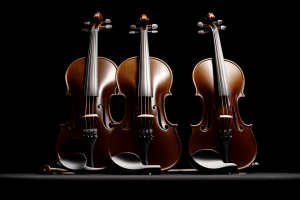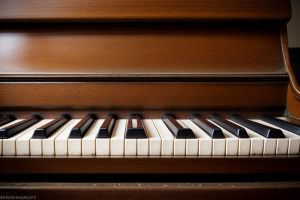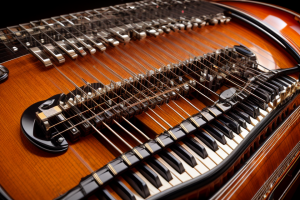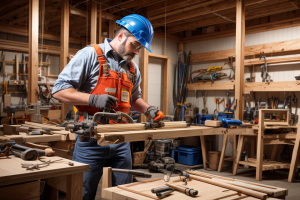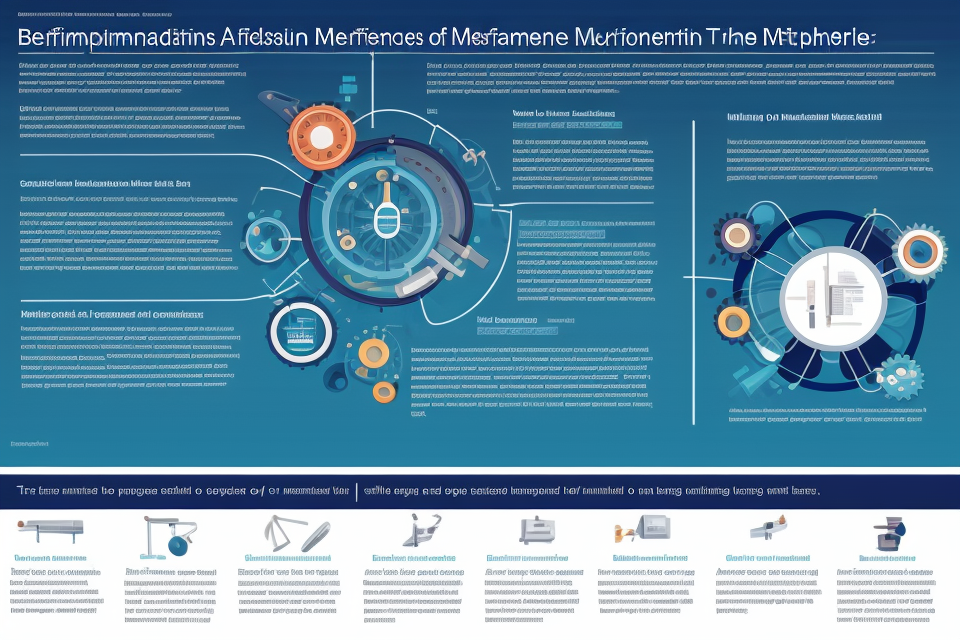
Choosing the right instrument company is crucial for any musician or music enthusiast. With so many options available in the market, it can be overwhelming to decide which one to trust with your investment. In this guide, we will explore the different aspects to consider when selecting the best instrument company. From the quality of their products to their customer service, we will delve into the details that matter most. Whether you’re a beginner or a seasoned pro, this guide will help you make an informed decision and ensure that you find the perfect instrument to suit your needs. So, let’s get started and discover the ultimate guide to instrument maintenance and finding the best instrument company.
What is Instrument Maintenance?
Definition and Importance
Instrument maintenance refers to the regular upkeep and care of musical instruments to ensure they remain in good working condition. This can include tasks such as tuning, cleaning, and making any necessary repairs. Proper instrument maintenance is crucial for musicians to achieve the best possible sound quality and performance from their instruments. Additionally, regular maintenance can help extend the lifespan of the instrument and prevent costly repairs in the future.
Types of Instrument Maintenance
Instrument maintenance refers to the upkeep and care of musical instruments to ensure they function properly and remain in good condition. Regular maintenance is crucial for any instrument, as it can help extend its lifespan and improve its performance.
There are several types of instrument maintenance, including:
- Daily Maintenance: This involves the daily care and cleaning of the instrument. This can include wiping down the instrument after each use, oiling moving parts, and tuning the instrument.
- Regular Maintenance: This involves more extensive cleaning and servicing of the instrument, such as cleaning the fingerboard and pegs, inspecting the instrument for damage, and making any necessary repairs.
- Periodic Maintenance: This involves more extensive cleaning and servicing of the instrument, such as removing and cleaning the strings, adjusting the action, and checking the sound post.
- Preventative Maintenance: This involves taking steps to prevent damage to the instrument, such as using a humidifier to prevent cracks, and protecting the instrument when not in use.
By understanding the different types of instrument maintenance, you can develop a comprehensive maintenance plan that will help keep your instrument in good condition and ensure it continues to perform at its best.
How to Choose the Best Instrument Company
Factors to Consider
When choosing an instrument company, there are several factors to consider to ensure that you are getting the best quality instruments and services. These factors include:
- Reputation: Research the company’s reputation in the industry by looking at customer reviews, ratings, and testimonials. This will give you an idea of the quality of their instruments and customer service.
- Product Quality: Look for a company that has a reputation for producing high-quality instruments that are durable and accurate. Consider the materials used, the craftsmanship, and the overall design of the instrument.
- Customer Service: Choose a company that offers excellent customer service, including prompt responses to inquiries, clear communication, and a willingness to help with any issues that may arise.
- Pricing: Compare prices between different instrument companies to ensure that you are getting the best value for your money. However, be wary of companies that offer very low prices, as this may indicate a lack of quality or customer service.
- Range of Instruments: Consider the range of instruments offered by the company, including brass, woodwind, percussion, and string instruments. A company with a wide range of instruments is more likely to have the instrument you need.
- Experience: Choose a company with a proven track record of producing high-quality instruments and providing excellent customer service. This will give you peace of mind knowing that you are working with a reputable and experienced company.
- Location: Consider the location of the instrument company, particularly if you need to have your instrument repaired or serviced. Choose a company that is conveniently located or offers mail-in services for repair and maintenance.
By considering these factors, you can ensure that you are choosing the best instrument company for your needs and that you will receive high-quality instruments and excellent customer service.
Comparison of Top Instrument Companies
When choosing the best instrument company, it is important to compare different companies based on several factors. Here are some of the key areas to consider:
- Product Range
- The company should offer a wide range of instruments that meet your specific needs.
- Consider the quality, durability, and performance of the instruments.
- Check if the company offers customized instruments or repairs and maintenance services.
- Reputation
- Research the company’s reputation in the industry.
- Look for customer reviews and testimonials.
- Check if the company has won any awards or recognitions.
- Pricing
- Compare the prices of instruments from different companies.
- Consider the value for money and the cost of maintenance and repairs.
- Look for discounts or promotions that may be available.
- Customer Service
- Assess the company’s customer service and support.
- Consider the response time and quality of communication.
- Check if the company offers technical support and training.
- Quality Assurance
- Ensure that the company follows quality assurance standards.
- Check if the company has any certifications or accreditations.
- Consider the company’s commitment to sustainability and ethical practices.
By comparing these factors, you can make an informed decision when choosing the best instrument company for your needs.
Best Instrument Companies
Company A
- Overview:
- Company A is a well-established instrument manufacturer that has been in business for over a century. They specialize in a wide range of instruments, including pianos, violins, and cellos.
- Company A is known for its commitment to quality and craftsmanship, using only the finest materials and employing skilled artisans to create their instruments.
- Instrument Selection:
- Company A offers a variety of instruments to suit different skill levels and budgets. Their beginner models are designed to provide a good playing experience for those just starting out, while their professional models are made for advanced players and feature high-end components.
- Company A also offers a range of specialty instruments, such as electric pianos and harps, for those looking for something unique.
- Maintenance and Repairs:
- Company A understands the importance of regular maintenance and offers a variety of services to help keep their instruments in top condition. This includes regular tuning, cleaning, and adjustments, as well as more extensive repairs and restorations.
- Company A also offers a warranty on their instruments, providing peace of mind for customers who invest in their products.
- Customer Service:
- Company A is known for its excellent customer service, with knowledgeable staff who are dedicated to helping customers find the right instrument for their needs. They also offer a wide range of resources, including tutorials and guides, to help customers get the most out of their instruments.
- Company A also has a network of authorized repair centers, ensuring that customers can get their instruments serviced by professionals who are familiar with their products.
- Pricing:
- Company A’s instruments are generally considered to be of high quality and are priced accordingly. However, they also offer a range of options at different price points, making it possible for customers to find an instrument that fits their budget.
- Additionally, Company A’s maintenance and repair services are competitively priced, ensuring that customers can keep their instruments in good condition without breaking the bank.
Company B
Introduction
Company B is a well-established and reputable instrument manufacturer, known for producing high-quality and reliable instruments for various industries. They have been in business for over 50 years and have built a strong reputation for their commitment to innovation, quality, and customer satisfaction.
Product Range
Company B offers a wide range of instruments, including analytical balances, precision scales, moisture analyzers, and density meters. Their products are designed to meet the needs of different industries, such as pharmaceutical, food and beverage, and chemical. They also offer customized solutions for specific applications.
Quality Control
Company B places a strong emphasis on quality control. They have implemented rigorous testing and quality assurance procedures throughout the manufacturing process to ensure that their instruments meet the highest standards of accuracy and reliability. They also offer calibration and maintenance services to help customers maintain the performance of their instruments over time.
Customer Support
Company B is known for their excellent customer support. They offer a comprehensive range of services, including technical support, repair and maintenance services, and training programs. Their team of experts is available to assist customers with any questions or concerns they may have, ensuring that they get the most out of their instruments.
Conclusion
Company B is a trusted and reliable instrument manufacturer, known for their commitment to quality, innovation, and customer satisfaction. Their wide range of products, quality control measures, and excellent customer support make them a top choice for customers looking for high-quality instruments for their industry.
Company C
When it comes to finding the best instrument company for your needs, there are many factors to consider. One of the top options on the market today is Company C. With a long history of producing high-quality instruments, Company C has earned a reputation for excellence among musicians and instrumentalists alike.
One of the standout features of Company C instruments is their attention to detail. From the carefully crafted wooden bodies to the precision-engineered mechanisms, every aspect of these instruments is designed to provide the best possible performance. Whether you’re a professional musician or a beginner just starting out, you can trust that a Company C instrument will provide the level of quality and craftsmanship you need to excel in your craft.
Another key factor to consider when choosing an instrument company is their commitment to customer service. At Company C, they understand that their customers are the heart of their business. That’s why they go above and beyond to ensure that every customer has a positive experience with their instruments. From personalized support to easy-to-understand warranties, Company C is dedicated to making sure that their customers are completely satisfied with their purchase.
Of course, no instrument company would be complete without a wide range of products to choose from. Company C offers a diverse selection of instruments, including guitars, violins, cellos, and more. Whether you’re looking for a classic acoustic instrument or a cutting-edge electric model, Company C has something to suit every need. And with a commitment to continuous innovation, they are always working to develop new and exciting products to meet the evolving needs of their customers.
In summary, Company C is a top choice for anyone looking for high-quality instruments and exceptional customer service. With a focus on detail, innovation, and customer satisfaction, they are dedicated to providing the best possible experience for musicians of all levels.
Instrument Maintenance Best Practices
Preventative Maintenance
Preventative maintenance is a crucial aspect of instrument upkeep that can significantly extend the life of your equipment and reduce downtime. Here are some best practices for preventative maintenance:
- Develop a maintenance schedule: Create a detailed maintenance schedule that outlines the specific tasks that need to be performed at regular intervals. This can include cleaning, calibration, and inspection of the instrument.
- Regular cleaning: Keeping your instrument clean is essential to ensure that it functions properly. Regular cleaning can help to prevent the buildup of dirt, dust, and other debris that can interfere with the instrument’s performance.
- Calibration: Regular calibration is necessary to ensure that your instrument is providing accurate readings. This can be done using a reference standard or by sending the instrument to a calibration service.
- Lubrication: Ensure that all moving parts of the instrument are properly lubricated to prevent friction and wear. This can help to extend the life of the instrument and reduce the likelihood of breakdowns.
- Inspection: Regular inspection of the instrument can help to identify any issues before they become serious problems. This can include checking for loose connections, worn parts, and other signs of wear and tear.
By following these best practices for preventative maintenance, you can help to ensure that your instrument is functioning properly and that downtime is minimized.
Calibration and Testing
Proper calibration and testing are critical components of instrument maintenance. These processes ensure that instruments are accurate and reliable, which is essential for obtaining accurate results in various applications. Here are some key considerations for calibration and testing:
- Frequency of Calibration: The frequency of calibration depends on the type of instrument and its intended use. For example, instruments used in laboratory settings may require daily calibration, while those used in manufacturing environments may only need calibration once a week or once a month. It is important to consult the manufacturer’s guidelines or consult with an expert to determine the appropriate frequency for your specific instruments.
- Types of Calibration: There are several types of calibration, including manual, automatic, and remote. Manual calibration involves physically adjusting the instrument’s settings, while automatic calibration uses sensors to automatically adjust the instrument’s settings. Remote calibration involves using a remote device to adjust the instrument’s settings. The type of calibration required depends on the instrument and its intended use.
- Calibration Records: It is important to maintain accurate records of calibration activities. This includes documenting the date of calibration, the calibration results, and any corrective actions taken. These records should be easily accessible and up-to-date to ensure that instruments are always in good working order.
- Testing: Testing is an essential part of instrument maintenance. Testing helps to ensure that instruments are functioning properly and providing accurate results. Testing should be performed regularly, and the frequency of testing depends on the type of instrument and its intended use. It is important to consult the manufacturer’s guidelines or consult with an expert to determine the appropriate frequency for your specific instruments.
- Data Analysis: Data analysis is an important part of instrument testing. Data analysis involves comparing the instrument’s readings to expected values and identifying any discrepancies. This helps to identify any issues with the instrument and take corrective action as needed. Data analysis should be performed regularly to ensure that instruments are always in good working order.
By following these best practices for calibration and testing, you can ensure that your instruments are accurate and reliable, which is essential for obtaining accurate results in various applications.
Cleaning and Storage
Maintaining musical instruments is essential to ensure they remain in good condition and continue to produce high-quality sounds. Cleaning and storage are crucial aspects of instrument maintenance that can significantly impact the instrument’s longevity and performance. Here are some best practices for cleaning and storing your musical instruments:
Cleaning
Regular cleaning is necessary to remove dirt, dust, and other debris that can accumulate on instruments over time. Dirt and dust can damage the instrument’s finish and cause it to wear out prematurely. Here are some tips for cleaning your musical instruments:
- Use a soft, dry cloth to wipe down the instrument after each use. This will remove any loose dirt or dust that may have accumulated on the surface.
- Use a specialized cleaning solution designed for your instrument. Be sure to follow the manufacturer’s instructions carefully, as some cleaning solutions can damage the instrument’s finish.
- Avoid using harsh chemicals or abrasive cleaners, as these can scratch the instrument’s surface and cause permanent damage.
Storage
Proper storage is essential to prevent damage to your musical instruments. Here are some tips for storing your instruments:
- Store your instrument in a dry, cool place away from direct sunlight. Excessive heat and humidity can cause the instrument to warp or crack.
- Use a hard case or a padded bag to protect the instrument from bumps and bruises.
- Adjust the instrument’s strings and tuning pegs before storing it. This will prevent the strings from stretching or breaking, and the tuning pegs from becoming loose.
- If you’re storing the instrument for an extended period, consider using a humidifier to maintain the appropriate humidity level.
By following these best practices for cleaning and storage, you can ensure that your musical instruments remain in good condition and continue to produce beautiful sounds for years to come.
Common Instrument Maintenance Issues and Solutions
Problem 1
Cracked or Damaged Instrument Components
Cracked or damaged instrument components can lead to significant problems when playing, including changes in pitch and tone quality. These issues can be caused by a variety of factors, such as humidity changes, extreme temperatures, or even regular wear and tear.
Solution
The first step in addressing cracked or damaged instrument components is to identify the source of the problem. This may involve working with a qualified technician who can inspect the instrument and identify any cracks or damage. Once the problem has been identified, the next step is to repair or replace the damaged component.
When looking for an instrument company to work with, it’s important to find one that has a reputation for producing high-quality instruments and providing excellent customer service. This may involve researching different companies, reading reviews, and talking to other musicians to get recommendations.
Once you’ve identified a reputable instrument company, the next step is to work with their customer service team to identify the best solution for your specific problem. This may involve repairing the damaged component or working with the company to arrange for a replacement instrument.
Regardless of which solution you choose, it’s important to work with a qualified technician who can ensure that the instrument is returned to proper playing condition. This may involve adjusting the instrument to ensure that it is in tune and producing the desired tone quality.
In summary, cracked or damaged instrument components can be a significant problem for musicians, but with the right solution and the help of a qualified technician, it’s possible to restore the instrument to proper playing condition. When looking for an instrument company to work with, it’s important to find one with a reputation for producing high-quality instruments and providing excellent customer service.
Problem 2
- Malfunctioning sensors
- Sensors are critical components of instruments, as they detect and measure various parameters, such as temperature, pressure, and flow rate.
- Over time, sensors can become dirty, damaged, or out of calibration, leading to inaccurate readings and potential instrument failure.
- To address malfunctioning sensors, it is important to regularly clean and calibrate them according to the manufacturer’s guidelines.
- Some instrument companies offer sensor repair or replacement services, which can be beneficial in maintaining instrument accuracy and preventing downtime.
- Additionally, it is advisable to invest in high-quality sensors from reputable manufacturers, as they tend to have longer lifespans and provide more reliable measurements.
Problem 3
Frequent Calibration Issues
Frequent calibration issues can arise when an instrument is not calibrated regularly or when the calibration is not done correctly. This can lead to inaccurate readings and can impact the quality of data collected. To address this issue, it is important to choose an instrument company that offers reliable and accurate calibration services. Look for a company that has a team of experienced technicians who can properly calibrate your instruments and provide you with a certificate of calibration for your records.
Poor Instrument Performance
Poor instrument performance can occur due to a variety of reasons, including wear and tear, damage, or contamination. This can lead to inaccurate readings and can impact the reliability of your data. To address this issue, it is important to choose an instrument company that offers comprehensive instrument maintenance services. Look for a company that can perform regular inspections, cleaning, and repairs to ensure that your instruments are always in optimal condition.
Inadequate Support from the Instrument Company
Inadequate support from the instrument company can leave you feeling frustrated and unsupported, especially when you encounter problems with your instruments. To address this issue, it is important to choose an instrument company that offers excellent customer support. Look for a company that has a team of knowledgeable and friendly customer service representatives who can answer your questions and provide you with the support you need to keep your instruments running smoothly.
Overall, by addressing these common instrument maintenance issues, you can ensure that your instruments are always in optimal condition and that you can collect accurate and reliable data. Choosing the right instrument company is crucial in achieving this goal.
Recap of Key Points
When it comes to instrument maintenance, there are several common issues that can arise. These issues can range from simple repairs to more complex problems that require specialized attention. In this section, we will recap some of the key points to consider when dealing with instrument maintenance issues.
- Regular cleaning and maintenance is crucial to ensure that instruments remain in good working condition.
- Some common issues include sticky keys, worn out strings, and poor tuning.
- It is important to address these issues as soon as possible to prevent further damage or wear and tear.
- Working with a professional instrument repair company can help ensure that any issues are addressed properly and efficiently.
- Choosing the right instrument company can make a significant difference in the quality of maintenance and repairs.
- Consider factors such as the company’s reputation, experience, and services offered when selecting an instrument company.
- Reviews and recommendations from other musicians can also be helpful in finding a reputable instrument company.
Future Outlook for Instrument Maintenance
The future outlook for instrument maintenance is positive, as there is a growing demand for well-maintained instruments in various industries. Here are some of the key trends that are shaping the future of instrument maintenance:
- Increasing demand for precision and accuracy: As industries become more competitive, there is a growing demand for instruments that can provide precise and accurate measurements. This means that instrument maintenance professionals will need to have a deep understanding of the latest technologies and techniques for maintaining and calibrating instruments.
- Growing focus on safety and compliance: In many industries, safety and compliance are top priorities. This means that instrument maintenance professionals will need to be familiar with safety regulations and standards, and be able to ensure that instruments are safe to use and compliant with relevant regulations.
- Rising adoption of automation and robotics: Automation and robotics are becoming increasingly common in many industries, and this trend is likely to continue in the future. This means that instrument maintenance professionals will need to be familiar with these technologies and be able to maintain and repair automated instruments.
- Greater emphasis on data analytics and predictive maintenance: With the growing volume of data being generated by instruments, there is a greater emphasis on data analytics and predictive maintenance. This means that instrument maintenance professionals will need to be able to analyze data and use it to predict and prevent maintenance issues.
Overall, the future outlook for instrument maintenance is positive, as there is a growing demand for well-maintained instruments in various industries. To stay ahead of the curve, instrument maintenance professionals will need to keep up with the latest technologies and techniques, and be able to adapt to changing industry needs.
FAQs
1. What factors should I consider when choosing an instrument company?
When choosing an instrument company, consider factors such as the company’s reputation, the quality of their instruments, their customer service, and their price. You should also consider the specific needs of your institution or research lab and look for a company that can provide instruments that meet those needs.
2. How can I ensure that the instruments I purchase are of high quality?
One way to ensure that the instruments you purchase are of high quality is to research the company and read reviews from other customers. You can also ask for recommendations from colleagues or other professionals in your field. Additionally, you can look for companies that have been in business for a long time and have a proven track record of providing high-quality instruments.
3. What types of instruments are available from instrument companies?
Instrument companies offer a wide range of instruments, including microscopes, spectrometers, analyzers, and more. Each type of instrument is designed for a specific purpose and can be used in a variety of settings, including research labs, hospitals, and industrial facilities.
4. How often should I perform maintenance on my instruments?
The frequency of instrument maintenance will depend on the specific instrument and how often it is used. However, it is generally recommended to perform regular maintenance on instruments to ensure they continue to function properly and provide accurate results. Check the manufacturer’s recommendations for specific maintenance schedules.
5. What is the best way to store my instruments when not in use?
The best way to store your instruments when not in use will depend on the specific instrument and its components. Generally, it is recommended to store instruments in a clean, dry place with adequate ventilation and away from direct sunlight. If the instrument requires special storage conditions, such as a controlled temperature or humidity level, be sure to follow the manufacturer’s recommendations.
6. How can I troubleshoot common issues with my instruments?
If you encounter a problem with your instrument, the first step is to consult the user manual or manufacturer’s website for troubleshooting tips. If you are unable to resolve the issue on your own, you may need to contact the instrument company’s customer service or technical support team for assistance. They may be able to diagnose the problem and provide guidance on how to fix it or arrange for a repair.
